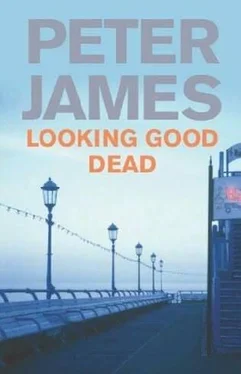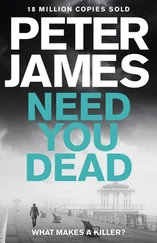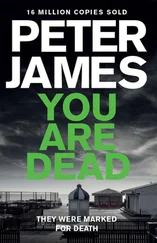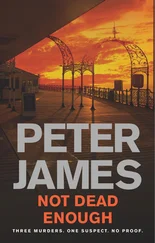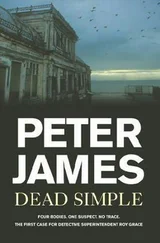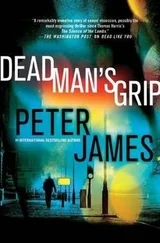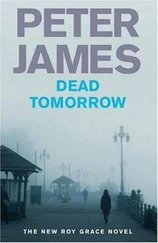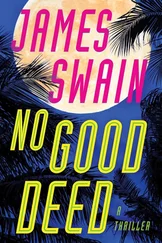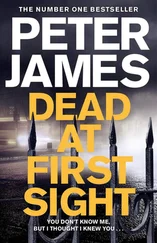He had phoned Kellie’s parents, all her close friends and all his, just in case she had gone to one of them for the night. He had even phoned her sister Martha, who lived in Scotland. No one had seen her, or heard from her. He did not know who else to phone or what to do.
Jessica laid her face against Lady’s and kissed her. ‘I love you, Lady. We’re going to make you better.’
There was no response from the dog.
Max knelt down also and laid his face against the Alsatian’s midriff. ‘We all love you, Lady. You’ll have to get up soon otherwise you’ll miss breakfast!’
None of them had had any breakfast, Tom realized suddenly. It was half past nine.
‘When Mummy comes back she’ll know how to make her better,’ Jessica declared.
‘Yes, of course she will,’ Tom said flatly. ‘You guys must be hungry – what would you like? French toast?’
Kellie always made the kids French toast on Sundays.
‘You don’t make it very well,’ Max said. ‘You always burn it.’ He stood up, picked up the remote and began surfing the channels.
‘I could try not to burn it.’
‘Why can’t Mummy make it?’
‘She will do,’ he said, struggling. ‘I could make you some – to keep you going until she gets back?’
‘Not hungry,’ Max said grumpily.
‘You want some cereal?’
‘You always burn it, Daddy!’ Jessica said, echoing her brother.
‘Can we go to the beach today, Daddy?’ Max asked. ‘Mummy said we could if it was nice – and I think it is nice, don’t you?’
Tom stared leadenly through the window. It looked glorious: blue sky, all the promise of a fine early summer’s day. ‘We’ll see.’
Max’s face fell. ‘Awww. She promised!’
‘Did she?’
‘Yes.’
‘Well, we’ll ask her when she comes home what she’d like to do today, shall we?’
‘She’ll probably just want to drink vodka,’ Jessica said without looking up.
Tom wasn’t sure if he had heard correctly. ‘What did you say, darling?’
Jessica continued stroking the dog.
‘Jessica, what was that you said?’
‘I saw her.’
‘You saw Mummy doing what?’
‘I said I wouldn’t tell.’
Tom frowned. ‘You wouldn’t tell what?’
‘Nothing,’ she said sweetly.
The doorbell rang.
Max ran out into the hallway, shouting excitedly, ‘Mummy! Mummy! Mummy’s home!’
Jessica sprang to her feet and followed her brother. Tom was right behind them.
Max pulled the front door open, then stared up in glum surprise at the tall black man in the shiny leather jacket and blue chinos who was standing there. Jessica stopped in her tracks.
Tom did not like the expression on the detective’s face one bit.
Glenn Branson knelt down to bring his face to the same level as Jessica’s. ‘Hello!’ he said.
She fled back towards the kitchen. Max stood his ground, staring at the man.
‘Detective Sergeant Branson,’ Tom said, a little surprised to see him.
‘Could I have a word with you?’
‘Yes, of course.’ Tom gestured for him to come in.
Branson looked at Max. ‘How you doing?’
‘Lady won’t wake up,’ the little boy said.
‘Lady?’
‘Our dog,’ Tom explained. ‘I think she has a bug.’
‘I see.’
Max lingered.
‘Why don’t you get some cereal for you and Jessica?’ Tom suggested.
Reluctantly Max turned and trotted back into the kitchen.
Tom closed the front door behind the detective. ‘Do you have some news?’ He was still puzzled by Jessica’s remark about the vodka. What did his daughter mean?
Talking quietly, Glenn Branson said, ‘We’ve found the Audi estate you said your wife was driving. It was burned out, torched, probably by vandals, up on Ditchling Beacon earlier this morning. We did a check on the chassis number – it’s registered in your name.’
Tom stared at him open-mouthed in shock. ‘Burned out?’
‘I’m afraid so, yes.’
‘My wife?’ Tom started shaking uncontrollably.
‘There was no one in it. Happens all the time at weekends. Cars get nicked by joyriders, then they set light to them, either for fun or to get rid of their prints. Usually both.’
It took some moments for it to sink in properly. ‘She was driving the babysitter home,’ he said. ‘How the hell could it have been nicked by joyriders?’
The Detective Sergeant had no answer.
The City of Brighton and Hove had so many different faces, Grace thought, and so many diverse people. It seemed that some cities were divided into different ethnic communities, but here in Brighton and Hove it was more like different sociological communities.
There were the genteel elderly, in their mansion blocks or sheltered housing, who on summer days could be seen watching the cricket at the County Ground or playing bowls on the Hove lawns, or sitting in chairs on the promenade, and the beaches in summer, and, if they had the funds, wintering in Spain or the Canaries. And the poorer elderly, shivering out the winter – and half the summer – imprisoned in their damp, dank council flats.
There were the in-your-face wealthy middle classes with their smart detached houses in Hove 4, and the more discreet, in the handsome seafront mansion blocks. And the more modestly off, like Grace, in homes spread out to the west to the suburb of Southwick, directly behind the commercial port of Shoreham Harbour, and in pockets all over the city and stretching well out to the Downs
Much of the colour and vibrancy of Brighton and Hove came from the very visible, and often brash, gay community, and the wall-to-wall students, from Sussex and Brighton Universities and the plethora of other colleges, who had colonized whole areas of the city. There were the visible criminals – the drug dealers lurking on the scruffier street corners, who would melt into the shadows at the smell of a police car – and the less visible ones, the rich ones at the top of their game, who lived behind high walls in the swanky houses of Dyke Road Avenue and its tree-lined tributaries.
Council estates fringed the city; the two biggest, Moulscombe and Whitehawk, had long had reputations for crime and violence, but in Grace’s view these were not particularly deserved. There were crime and violence all over the city, and it made people feel comfortable to point a finger at these estates, as if there was an altogether different species of Homo sapiens living there instead of mostly decent folk who didn’t have enough money to buy themselves smugness.
And there was the sad underclass. Despite regular attempts to remove them from the streets, the moment the weather warmed up, the winos and the homeless drifted back to the shopfronts, porches, pavements and bus shelters. This was bad for tourism and even worse for the city’s conscience.
From the start of the festival in May and the arrival of spring, tables and chairs appeared outside every cafe, bar and restaurant, and the streets of the city came alive. Some of those days, Grace thought, you could almost imagine you were on the Mediterranean. Then a weather front would move in off the Channel, a howling south-westerly accompanied by punishing rain that would drum on the empty tables and lash the windows of boutiques filled with mannequins in beachwear, as if mocking anyone who dared to pretend that England ever actually had a summer.
The beating downtown heart of the city, through which they were travelling now, was concentrated in a square mile or so either side of the Palace Pier. There were the tightly packed Regency terraces of Kemp Town, in one of which Janie Stretton had lived; the Lanes, where the antique dealers were centred; and the North Laines district filled with small, trendy shops and tiny town houses, among which was the converted factory building where Cleo Morey had her flat.
Читать дальше
